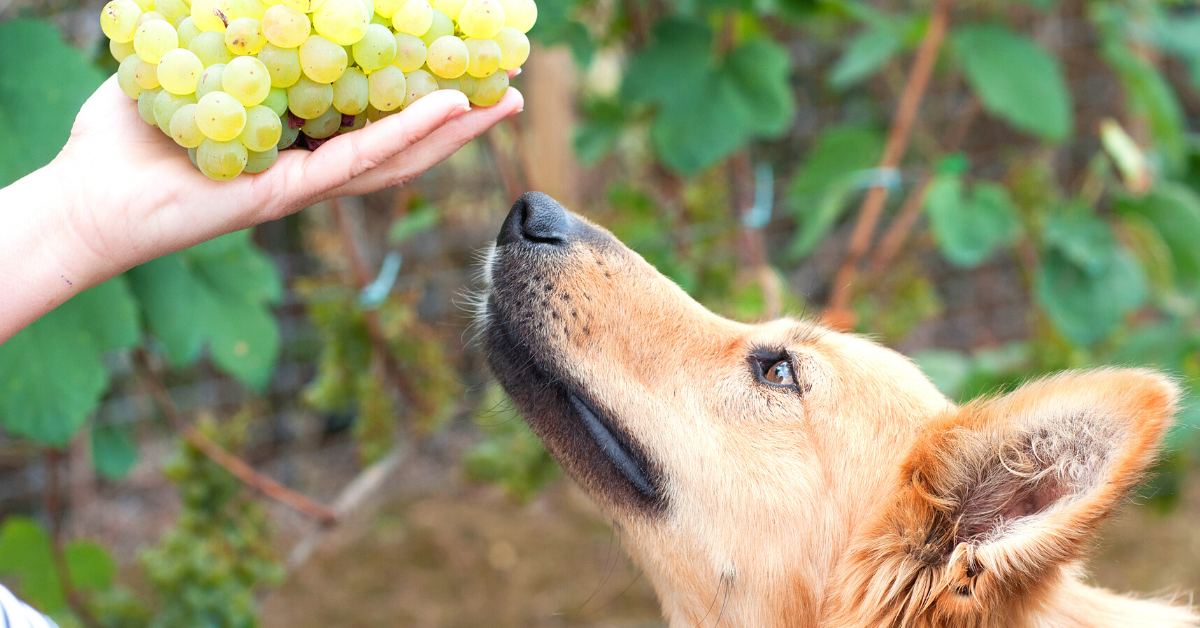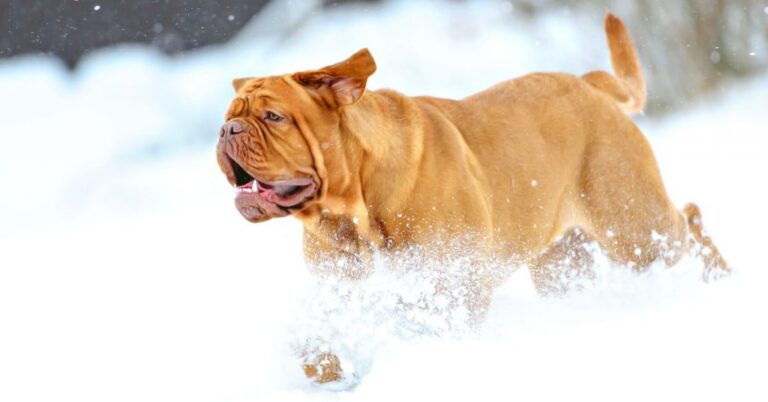Are Grapes Toxic to Dogs?
Are grapes toxic to dogs? The answer is simply yes! Grapes, raisins, and currants are considered highly toxic to dogs.
The particular component in the fruit that triggers this reaction is still unknown. Seedless grapes or peeled ones should also be avoided.
Sadly, grapes can cause kidney failure to dogs. Any type of grapes is considered toxic including seedless or seeded grape varieties, red or green grapes or raisins, organic or non-organic.
Additionally, foods containing grapes, raisins, and currants are also toxic. However, grape jellies, grape juice and wine do not appear to cause toxicity.
Why are Grapes Toxic to Dogs?
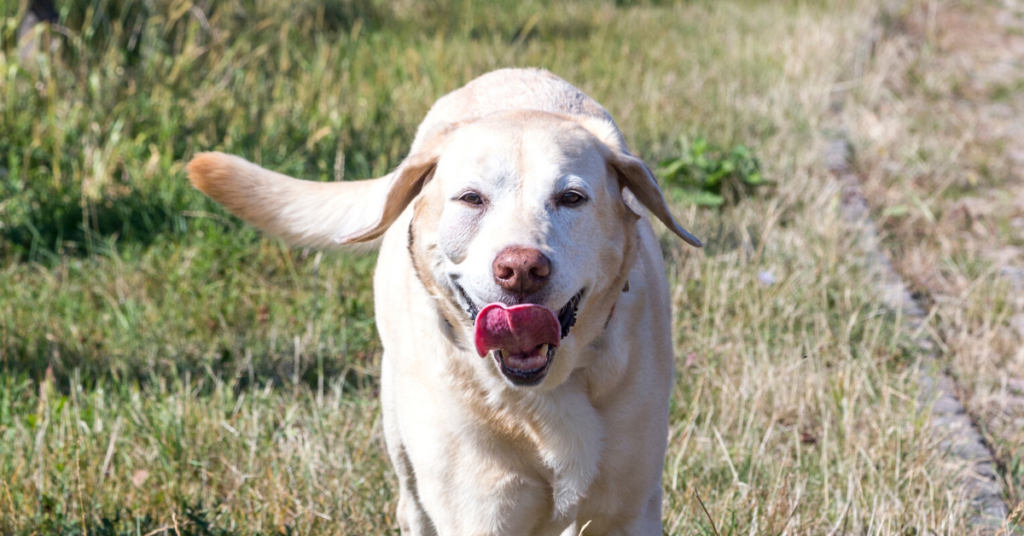
It is yet unknown why these fruits are poisonous. There has been controversy over the years as to whether the toxicity is caused by a mycotoxin, which is a toxic substance generated by a fungus, or mold.
Or a salicylate, aspirin-like medication, naturally found in the grape, which causes decreased blood flow to the kidneys.
Recently, tartaric acid has been suggested as a possible reason. However, no specific toxic agent has been found to date.
Because the reason for the toxicity of these fruits is unknown, any exposure should be treated with caution.
There is no known toxic dose, but there are two guidelines to follow. If dogs consume large amounts of grapes, they are more likely to become poisoned.
In addition, some dogs can eat small pieces of grapes without consequences, while other dogs may get poisoned after eating just a few grapes or raisins.
Unfortunately, there is no way to know which dogs may be more sensitive to grapes.
Signs of Grapes Toxicity in Dogs
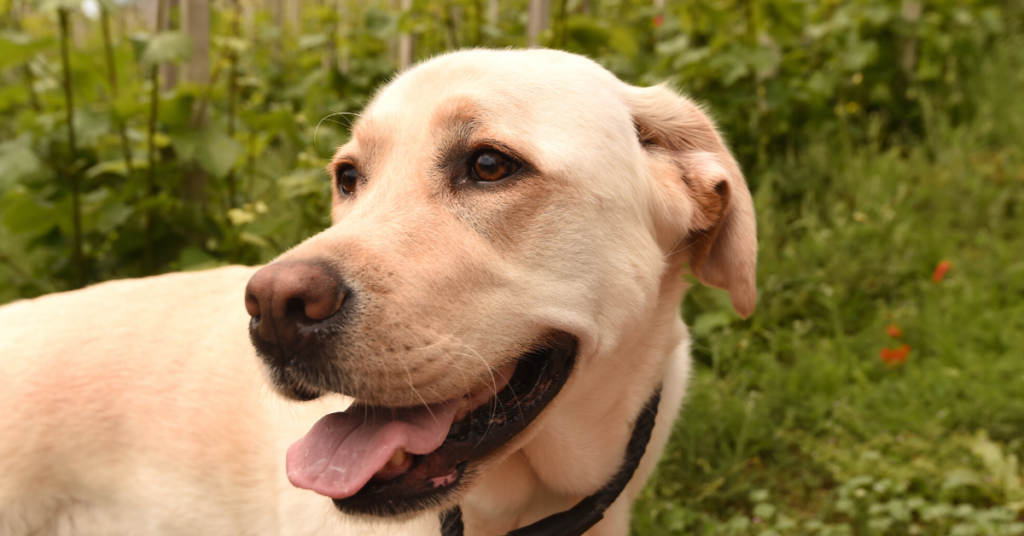
Early Signs of grape and raisin toxicity in dogs include:
- Appetite loss
- Low energy and lethargy
- Vomiting, usually within a few hours to 24 hours of ingestion
- Diarrhea can be seen within 12-24 hours
More severe signs are not seen for 24-48 hours, which is usually after acute kidney damage has started.
Signs of acute kidney failure include:
- Nausea
- lack of appetite
- Vomiting
- Breath with ammonia odor
- Diarrhea
- Abdominal pain
- Excessive thirst
- Excessive urination
The kidneys will stop working as the poisoning develops, and the dog may be unable to generate urine. The dog’s blood pressure often rises drastically as a result of this.
Finally, due to an accumulation of toxins that the kidneys normally remove from the body through urine, the dog may fall into a coma.
The prognosis is bad once the kidneys have shut down and urine output has decreased.
What to Do if Your Dog Ate Grapes
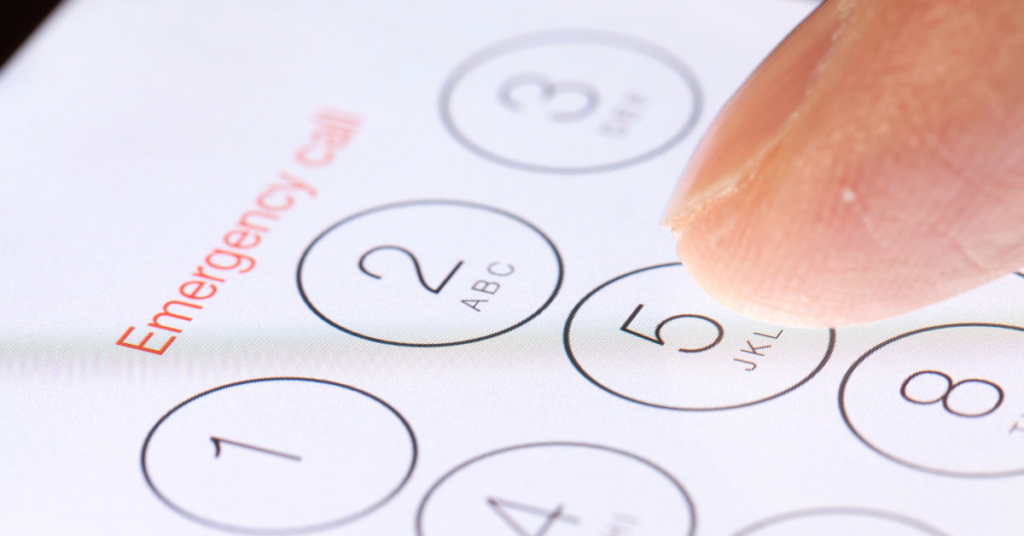
If you suspect your dog has ingested grapes or raisins, contact your veterinarian, Pet Poison Helpline, or an animal poison control center immediately.
The sooner the poisoning is discovered and treated, like with any toxin, the less deadly it will be for your pet, and treatment would be less expensive.
How is Grapes Poisoning Diagnosed?

Unfortunately, the early signs of grape or raisin poisoning are similar to a range of other problems.
A history of consuming grapes, raisins, or currants, or the presence of grapes or raisins in the dog’s vomit, will help your veterinarian diagnose this poisoning.
To determine the level of kidney damage, your veterinarian may offer diagnostic tests such as a complete blood count (CBC), a serum biochemistry profile, and a urinalysis.
The findings of the tests will be used to estimate the dog’s chances of recovery.
Treatment of Grapes Poisoning in Dogs

Treatment of grapes poisoning in dogs focuses on reducing kidney damage by blocking poisons from being absorbed.
Your vet will detoxify the dog right away by inducing vomiting, and administering activated charcoal.
This will help to prevent absorption of the toxin from the stomach or intestines.
Grapes and raisins remain in the stomach for a long time. This is why it’s critical to induce vomiting even up to 4-6 hours after ingestion.
Following decontamination, additional therapy, such as intensive intravenous fluids to support and preserve the kidneys in the hopes of limiting harm to them, may be required.
Your vet may also prescribe drugs that control nausea and vomiting, as well as maintaining blood flow to the kidneys and control blood pressure.
Following ingestion, dogs should be hospitalized for 48 hours on intravenous fluids. Affected animals may require several days of hospitalization.
Throughout treatment, your veterinarian will check the dog’s kidney function levels on a daily basis to assess the dog’s response to the treatment and determine whether it needs to be intensified.
Blood tests may be repeated 1-2 days after the dog returns home. This is to ensure that kidney function has not deteriorated.
When to See a Veterinarian
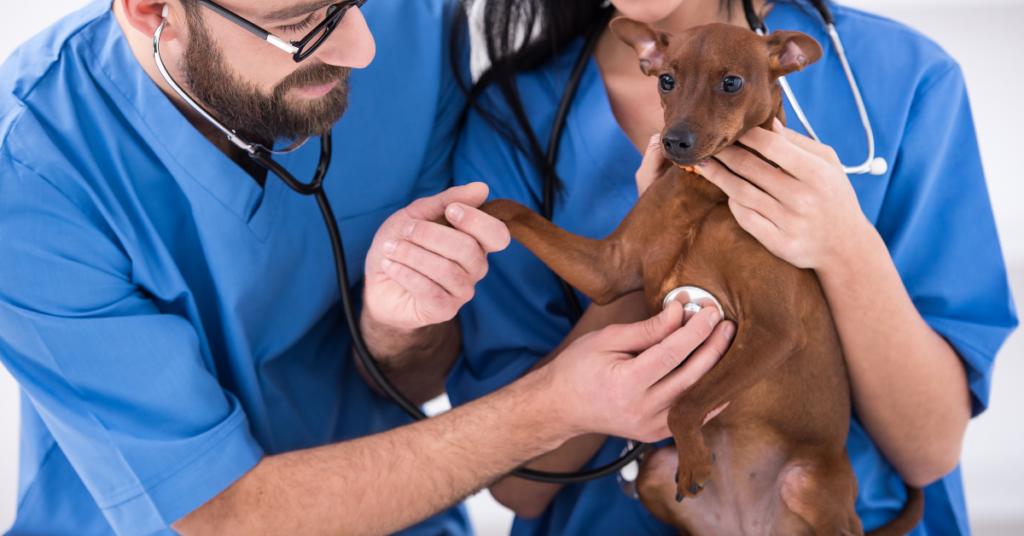
If you suspect your dog ate any amount of grapes, or notice signs mentioned earlier, contact your emergency veterinarian immediately.
Early diagnosis and treatment of grape toxicity will help in better recovery and prognosis.

